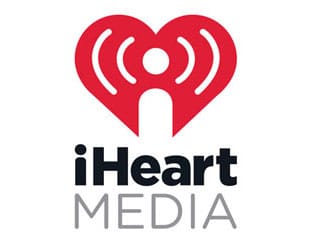 The state of talk radio is thriving in spite of striving to define or redefine itself. So what is talk radio? Talk shows (hosts) that are broadcast on radio stations? Or, rather, a hybrid that includes all forms and platforms of broadcast and digital: radio stations, internet, streaming, mobile apps, podcasting and social media? Must a talk show involve an actual listening audience that includes callers? Talk radio today seems to involve almost everybody. It is like reality TV.. fame for the inane or the insane. Talk radio rallies some of the same ilk.. simply mouth-off about anything and stream it or podcast it and you are a self-proclaimed talk host. Reality radio.. everyone has a rant.. it seems like everyone is doing it. It has morphed into a ubiquitous platform for all comers. This role requires seemingly no resume of valued experience or performance evaluations; no standards, skills, talents or qualifications necessary.. simply a desire to just talk. Why do most “talkers”, even posers, call themselves talk radio hosts? Many of them have never been hired to talk professionally, let alone ever visited a talk radio station. Some hosts in the new media seem to suffer delusional visions of their shows reach and impact, while others are more realistic. Some of these shows do produce quality content. What merits one to claim the title or position of talk radio host? Everyone is entitled to talk. Yet, is more unfiltered talk generated by the masses better for the broadcast medium? Should there be a distinction between the “hobbyist” and the professional? How about the brokered bonanza (pay to play) shows? What is real talk radio?
The state of talk radio is thriving in spite of striving to define or redefine itself. So what is talk radio? Talk shows (hosts) that are broadcast on radio stations? Or, rather, a hybrid that includes all forms and platforms of broadcast and digital: radio stations, internet, streaming, mobile apps, podcasting and social media? Must a talk show involve an actual listening audience that includes callers? Talk radio today seems to involve almost everybody. It is like reality TV.. fame for the inane or the insane. Talk radio rallies some of the same ilk.. simply mouth-off about anything and stream it or podcast it and you are a self-proclaimed talk host. Reality radio.. everyone has a rant.. it seems like everyone is doing it. It has morphed into a ubiquitous platform for all comers. This role requires seemingly no resume of valued experience or performance evaluations; no standards, skills, talents or qualifications necessary.. simply a desire to just talk. Why do most “talkers”, even posers, call themselves talk radio hosts? Many of them have never been hired to talk professionally, let alone ever visited a talk radio station. Some hosts in the new media seem to suffer delusional visions of their shows reach and impact, while others are more realistic. Some of these shows do produce quality content. What merits one to claim the title or position of talk radio host? Everyone is entitled to talk. Yet, is more unfiltered talk generated by the masses better for the broadcast medium? Should there be a distinction between the “hobbyist” and the professional? How about the brokered bonanza (pay to play) shows? What is real talk radio?
Everyone talks thereby transmitting messages, thus, we are all media vessels conveying communications. Many talkers are mere repeaters mimicking one another. We do vary in our reach and our social circles or spheres of influence. To some degree nearly all of us are networking through social media. The act of socializing seems sufficient in this new paradigm of the new media.
So is talk radio evolving or devolving? Is it on a sustainable path of evolvement or eventual and inevitable extinction? Time will tell.
–Tom Donahue, PD for Talk Stream Live






Dear Tom,
Great questions need great answers. Let me offer my two cents.
Talk Radio is evolving faster than it ever has before. Just as technology has evolved so has the ability to reach ever-wider audiences. Talk Stream Live is a great example.
The two main things that are changing are mobility and on-demand. We listen everywhere because of Apps and Smartphones, and we can choose to listen when we want, as opposed to the old days of just 10 years ago where, if you wanted to hear Rush, you had to listen to him LIVE, now, you can listen to him at 2am in the morning from the Mojave desert if you want, as long as you have an internet signal.
As more and more people start listening to spoken word, niche markets will evolve, and are already evolving.
If you read The Long Tail by Chris Anderson, about how niche content can still generate millions in listeners as the Web gets wider (it will double in the next ten years from 3 billion smartphone users to over 6 billion, wrap your mind around that!), audiences will get larger, and location will not matter as much (especially for any company that can ship its product or service via Fed Ex or UPS).
Local radio is always more valuable because people naturally can connect far easier when the talent is there, but as far as content and distribution, Spoken Word is exploding because it is such a great one-on-one experience. And like any industry, the cream will rise to the top.
I predict the next big radio star may very well come from the Internet, but partly because the radio industry doesn’t have the farm team it used to cultivate, due to budget cuts, and partly because the Internet is the wild frontier.
Bottom line, the listener will have more choices and this will drive more people to try new things, to find their niche.
You are so right about on-the-go listen anywhere and anytime on-demand mobile media. The digital domain is well on its way to becoming the predominant platform. While some established shows have sought refuge in the cyber-sphere retreating from the mainstream in order to branch out creatively or to pursue a more independent path. Most have struggled to gain traction, that is, getting found and heard, maintaining and growing their base and attempting to monetize their media efforts.
(Be sure to revisit my blog for the updated version).
I must firmly disagree with your commonly held assertion that the cream will always rise to the top. My next article in this series addresses this “The vast majority of talk radio programming is conservative political talk. Much of this dominance over talk media is predicated on corporate control and monopoly. However, admittedly, this genre is highly successful and listener driven. Yet, some of the top talk hosts are highly paid and promoted puppets, selected shills hired for their allegiance to an ideology. These loyal lackeys are royally rewarded and advanced in many cases; bypassing free market forces and are promoted and protected in syndication to the hundreds of stations their employers own…” Most independent voices are excluded from the party..
In any case I do appreciate your thoughtful response.
All audio broadcasting would be far better if we had ownership limits such as 50 “AM” stations, 50 FM stations and 50 TV stations per licensee. Big companies like Cumulus seem to turn what they touch into feces. The price of broadcast stations would go down so those who have broadcasting in their hearts would become owners.
Comments are closed.